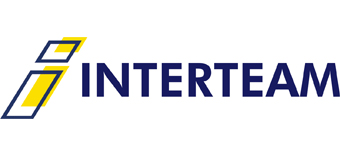Customer Information | Brexit August 2020
Three-stage procedure:
The UK will introduce customs procedures by product group on 01.01.2021 for imports from the EU by means of a 3-step plan:
- 01.01.2021:
- Standard goods: Instead of the simplified transition procedure (TSP) introduced in 2019, a so-called “CFSP” procedure with “EIDR” (Customs Freight Simplified Procedures and Entry In Declarants Records) will be implemented for a continuous 6 month period from 01.01.2021 to 30.06.2021, initially without prior application, introduced for all British importers (EORI UK).
- Similar to TSP, the importers must independently keep records (customs tariff number, invoices, value of goods etc.) of all imports as part of this procedure (CFSP with EIDR). The import must be reported to customs after 6 months at the latest. Example: An import from April 1st must be registered by September 30th, an import from June 1st to November 30th
- Any customs payments must be made together with the postponed customs declaration, at the latest after 6 months
- At the time of the postponed declaration (Supplementary Declaration), an approval for the “Customs Freight Simplified Procedures” (CFSP) or the appointment of a customs agent is necessary
- Alternatively, a full customs declaration can be submitted to British Customs prior to shipment. However, any customs charges must be paid directly to UK Customs on import either with a deferred customs account or other payment methods. The use of an agent customs deferral account is possible.
- UK import sales tax is payable quarterly
- Goods with the required import permit (e.g. goods subject to excise duty, live animals and certain plant products); that fall under the “Controlled Goods” status: The EIDR procedure cannot be used. Either the simplified customs procedure (CFSP / Simplified Frontier Declaration) must be used or a complete customs declaration must be submitted in advance.
- 01.04.2021:
- For all products of animal origin, for example meat, pet food, honey, milk or egg products and all goods that fall under health and phytosanitary regulations, the so-called SPS products (Sanitary and phytosanitary products of animal origin, plants, vegetables, fruit and produce: https://eur-lex.europa.eu/legal-content/EN/TXT/?uri=CELEX:32007D0275) import declarations and health certificates from British customs are mandatory from April 1st, 2021.
- Sanitary and phytosanitary requirements (EN): https://trade.ec.europa.eu/tradehelp/sanitary-and-phytosanitary-requirements
- Information from the Federal Ministry of Food and Agriculture on veterinary hygiene export conditions: https://www.bmel.de/DE/themen/tiere/tierhandel-und-transport/transporte-in-drittlaender/tiertransport.html (may differ from country to country)
- Pre-registrations must be made via the GB “IPAFFS” system (Import of products, animals, food and feed system)
- 01.07.2021:
- The Temporary Simplified Procedure Agreement and the Customs Freight Simplified Procedures and Entry In Declarants Records will only apply until the end of June 2021.
- For imports from the EU, the CFSP procedure must be applied for and approved in general from 01.07.2021 or full customs procedures (C88) will be applied to all imports.
- Customs declarations must be made before shipment
- Use of the new british customs system GVMS
- Alternatively, the transit procedure (T-paper) can be used
- From 01.07.2021, border controls will intensified
Further Information:
Information from the EU: The EU Commission provides detailed information on the preparation for the end of the transition period in a communication entitled “Ready for changes …”.
Among other things, important information is given on the following topics: Customs formalities and customs controls, customs and tax regulations for the import and export of goods (customs, value added tax, excise duties), as well as certification and approval of products, requirements for the branch as well as labeling and Labelling. EUR-Lex document: 52020DC0324: https://eur-lex.europa.eu/legal-content/EN/TXT/HTML/?uri=CELEX:52020DC0324&from=DE
Information from british customs authorities:
https://www.gov.uk/check-duties-customs-exporting
https://www.gov.uk/government/publications/the-border-operating-model
UK Import VAT: UK Customs HRMC is currently examining a plan to introduce deferral accounts for companies that do not yet have an approved current deferral of import VAT (Customs Comprehensive Guarantee) or do not use an agent deferral account.
Originating status / Customs tariff (UK)
From 01.01.2021, the originating status of the traded goods must be proven in order to be able to claim preferential treatment under a future agreement between the EU and Great Britain. Customs duties are levied on goods that do not meet the origin requirements, even if the EU and the UK conclude a duty-free and quota-free trade agreement.
The new customs tariff “UK Global Tariff” applies to all goods that are imported from 01.01.2021, unless there is an exception (see above): https://www.gov.uk/check-tariffs-1-january-2021
Customs tariff online tool: https://www.check-future-uk-trade-tariffs.service.gov.uk/tariff
Incoterms is becoming more focused to avoid legal misunderstandings under the UK’s new status. The respective obligations of the parties with regard to transfer of risks, costs and transport procedures, as well as customs clearance are regulated by Incoterms.
EORI: From 01.01.2021, exporters or importers from the EU will need an EORI number, which is assigned by the customs of the respective EU country. EORI numbers previously assigned in Great Britain are no longer valid. Exporters or importers from Great Britain must therefore have applied for an EORI number in Great Britain before 01.01.2021.
From the first shipment after 01.01.2021, the EORI number of the EU exporter and that of the British consignee are required.
CFSP is a simplified customs procedure that is processed using the Simplified Declaration Procedure (SDP) or the Entry Into Declarants Records (EIDR) procedure. A declaration of imports must be made to customs by the 4th of the following month. The customs registration for the CFSP procedure takes approx. 4 months. For declarations under the CFSP procedure, a freight forwarder in the UK can be commissioned with import clearance and, if necessary, fiscal representation for the CFSP procedure.
Export procedures:
EU exports (from Germany):
- Export declaration: Issuing the export accompanying document (ABD or English: EAD) via the customs IT system Atlas by the customs representative (for example: Interteam)
- Presentation / demonstration at customs:
- Goods with a value of € 3.000,00 must be presented to the customs office in advance or a single application for presentation outside the customs office place has to be made for every single export (“Applications for presentation outside the office place must be timely, no later than two hours before the office closes the day before packaging and shipping… “).
- Note: Costs may be charged for the demonstration at customs or the so-called presentation outside the office
- Exporters with a simplified customs declaration procedure with formal authorization: Goods are automatic release for export without presentation to customs
- Do you have an formal authorization for the simplified customs declaration procedure?
- Do you have a permit for a simplified procedure from the customs?
- The customs IT system Atlas generates an MRN (EU Movement Reference Number)
- Notification of the MRN to the shipping company (Calais) or registration in an electronic port data system (Rotterdam and Amsterdam)
- Final clearance at the EU external border and generation of the proof of export (AV) as proof of VAT-exemption at the German tax office
GB exports (Information to follow):


